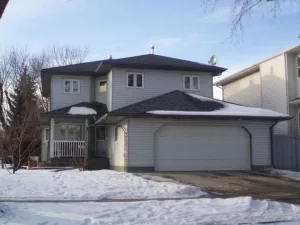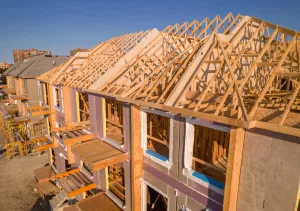Whether to buy a given house shouldn’t be determined by wall color, the appliances, or a cracked sidewalk – although you might be surprised how often things that are easily fixed become a deciding factor. But if you put issues that can be changed aside, you will be able to focus your house hunting on what really matters: the things you’ll be stuck with until you decide to move.
Every homebuyer has unique preferences that will influence his or her final decision, but there are a few aspects of any home you need to consider – regardless of these idiosyncrasies. Check out the key areas you need to focus on when you’re looking to purchase a house.

Price
Price – if only this weren’t a factor is home buying. The reality is, if you’re not looking at price, you’re not serious about buying a home. More than any other factor, price dictates what you can – or will – buy. This is less often a case of what you want to spend than what you can afford (and what your lender agrees to lend you). Not only are you limited by your income and down payment, but also by the market and the current mortgage interest rate. So, if you are in the market for a house, consider price first; it’ll narrow things down a lot and force you to get realistic about what kind of home you can expect.
(If you happen to be wondering about Edmonton real estate prices, please give me a call or drop me a line – I can help show you what makes real estate valuable in Edmonton)
Location
Houses in Siberia are probably pretty cheap this time of year. Interested? Exactly.
Size
Where you live is certainly important, but whether the size of the homes in that area will accommodate you is a big factor. You probably have an idea of how much space you need to be comfortable. Is your family growing? Do you plan on having frequent guests? Will you have the privacy you want?
The whole point of owning real estate is to have control over how you live (see Why Buy A House?). So after you have decided what you will spend and where you will be, size becomes an issue. Total home size is important, but so are things like lot size or garage size.
For example, Edmonton real estate has changed over the years – houses have gotten larger, while lots have gotten smaller. And it’s not just overall sizes that are important. Specific sizes become important as well. Some homes have small bedrooms and small closets, while some devote too much space to a dining room, sacrificing kitchen space in the process. All these ways of slicing up the pie affect your daily life, so consider what you want carefully. Do you actually want a large yard that needs maintaining? Do you really need or want all this space? After all, you’re going to pay for every foot of it.
Condition
The nice thing about condition is that it’s much easier to change than size and location – so keep this in mind when you’re buying.
A lot of people think that the age and the condition of a property are the same thing. True, some homes are in rough shape after years of neglect, but there are also new homes that are in poor condition and need work. The key is to try not to focus on the age of a home, but rather how well it has been maintained over the years.
When you buy, your real estate agent will likely ask you if you’re interested in doing any work on your new place. Do you want to renovate or do you want to have something that’s move-in-ready? If you’re willing to be flexible about the condition of your home, you may also gain some additional flexibility in location, price and size. For example, if you take something that needs a little TLC, you’ll probably be able to afford something larger or in a more desirable location. The nice thing about condition is that it’s much easier to change than size and location, so keep this in mind when factoring it in.
Amenities
Each home has its perks. Real estate agents call these “amenities,” and they include things as simple as a fence, an RV parking pad, a hot tub or air conditioning. These are usually little things in the grand scheme of home buying, but they can be expensive and somewhat important to certain buyers. Usually though, amenities aren’t something that really sell someone on a particular house. They might be enough to generate interest, but unlike location and size, they aren’t factors that everyone agrees on. Some amenities can be items to consider when buying a property and they can be of interest to certain buyers. But besides things like swimming pools and workshops, most amenities can be added to a property at a nominal cost.
Feel
You aren’t just going to crunch some numbers on a page and buy the house that comes out on top.
And don’t worry about whether you’ll make an extra $5,000 by buying one house over another – save that for investors. After all, if you don’t like the home you choose, that extra money won’t fix its problems. Sometimes it takes a long time to find a house, and sometimes buyers find one on the first day. As long as you get the right information, you’ll know which one is right for you.
by +Alan F Macdonald REALTOR® | Copyright © – gimme-shelter.com
[10003]


One thought on “What To Look For When Shopping For A Home”
Comments are closed.